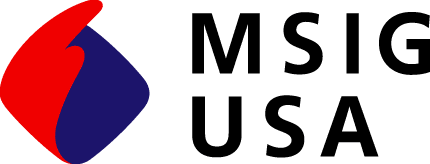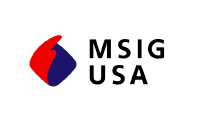
You are currently leaving the MSIG website to a site not hosted by MSIG.
How Excess & Surplus insurance can help protect your high-risk property and products
Buying insurance is one of the most financially responsible decisions one can make, whether it’s to help protect a vehicle, home, business or a family’s financial well-being in the event of their death. Insurance is not only beneficial from a financial peace of mind aspect, it’s also a relatively simple concept. The customer, or the insured, pays an insurance company a premium, and in turn, the insurance company assumes the risk and can help offset the financial losses if incident that the policy insures takes place in the future.
But what if an insurance company deems there’s too much risk in a given situation? Yes, taking on risk is part of an insurers’ business model, but there’s a certain level that it is comfortable with. Once that level has been exceeded, businesses in need of insurance can turn to excess and surplus lines of insurance.
Keep reading to learn more about how excess and surplus lines work, what they can help to insure and how MSIG can help.
What is Excess and Surplus lines property insurance?
Excess and Surplus lines property is a segment of property insurance that can help provide insurance for higher than standard risk. Insureds that have already suffered losses or that are in a high-risk arena like manufacturing, would be in line for excess and surplus lines insurance. Basically, if a standard insurance carrier is unwilling to write a risk for risk-related reasons, excess and surplus lines can offer insurance products that a business might not otherwise receive.
Reasons that standard insurers might want to avoid providing a policy that would necessitate this type of insurance include how frequently a product or property is exposed to risk, how severe the damage could possibly be or the type of business involved.
“I’ve seen classes of business that are one end of the spectrum to the other,” Christopher Zitzmann, MSIG National Underwriting Manager, Excess & Surplus Lines Property said. “There are a lot of exposures that fall in the excess and surplus lines market. It does not necessarily have to be driven by the loss history. It could simply be there’s a peril that a particular account is exposed to that the standard markets don’t have the comfort level with writing, (such as) wildfire and tornado issues. Those accounts would fall to excess and surplus lines.”
What does Excess and Surplus lines property insurance help protect?
In essence, excess and surplus insurance s the counterpart to standard property insurance.
“If it’s a superior type of risk, you will see some standard carriers providing ground up limits,” Zitzmann said. “But for the most part, if there’s a (catastrophe) component to it or a tough class of business associated, whether it’s on the manufacturing or software side, you’ll see some of that account fall into the excess and surplus lines market.”
Excess and surplus lines insurance could also be applied to a portion of business’s properties. For example, if the business had 100 locations, and half of them were deemed to be in “low risk” areas, they could be eligible for standard coverage. Properties in the portfolio considered high risk because of where they are located or potential exposure to storms may fall outside of standard insurer’s risk tolerance and require excess and surplus insurance.
Let MSIG help you secure Excess and Surplus lines property insurance
Access to excess and surplus insurance could be the difference between an enterprise having adequate insurance or not. For example, if an insured had an unfortunate year in terms of claims and had a $5 to $10 million loss at one of their locations, their chances of getting coverage would be low.
The same issue applies to getting insurance for higher hazard-type materials such as ammunition. Insuring a manufacturer of any material that’s deemed hazardous comes with a significant amount of risk and will most likely fall into the excess and surplus lines market. Such a policy needs to be written so it can help to provide the insurance that the insured needs, which they probably would not find in the standard insurance market. Excess and surplus insurance has become a bigger necessity every year.
MSIG continues to have a strong presence in this arena because excess and surplus has become a necessary product for businesses that have had trouble securing property insurance. The company has the ability to deploy capacity according to the specific risk or peril that’s involved.
Other insurance providers may share the excess and surplus arena with MSIG, but the company’s property underwriters are what sets its insurance products apart from the rest. The team is highly skilled when it comes to technical underwriting, which is critical in this insurance line. MSIG’s underwriters share a unique ability to locate a specific exposure, analyze it and underwrite it accordingly.
“Obviously, we’re in the business of seeking out profitable opportunities, but we enjoy finding creative solutions for our trading partners,” Zitzmann said. “We just don’t take a pile of submissions, and broad stroke them. We look at each individual account on its own merit. I’ve worked at four different carriers; whether it’s excess and surplus, specialty property or general property, when it comes down to it, at MSIG, it’s just a very unique set of skills our underwriters have. That’s the driving difference between the MSIG E&S product versus others.”
To learn more about the MSIG excess and surplus lines products, contact us today.
MSIG refers to the U.S. subsidiary insurers of Mitsui Sumitomo Insurance Company, Limited, a member of MS & AD Insurance Group. The insurers are managed by Mitsui Sumitomo Marine Management (U.S.A.), Inc. with offices at 15 Independence Boulevard, P.O. Box 4602, Warren, NJ 07059-0602, USA.

